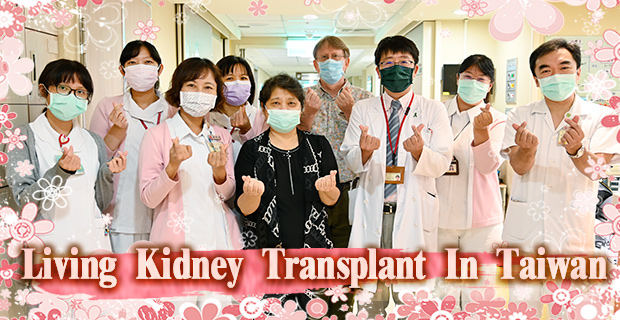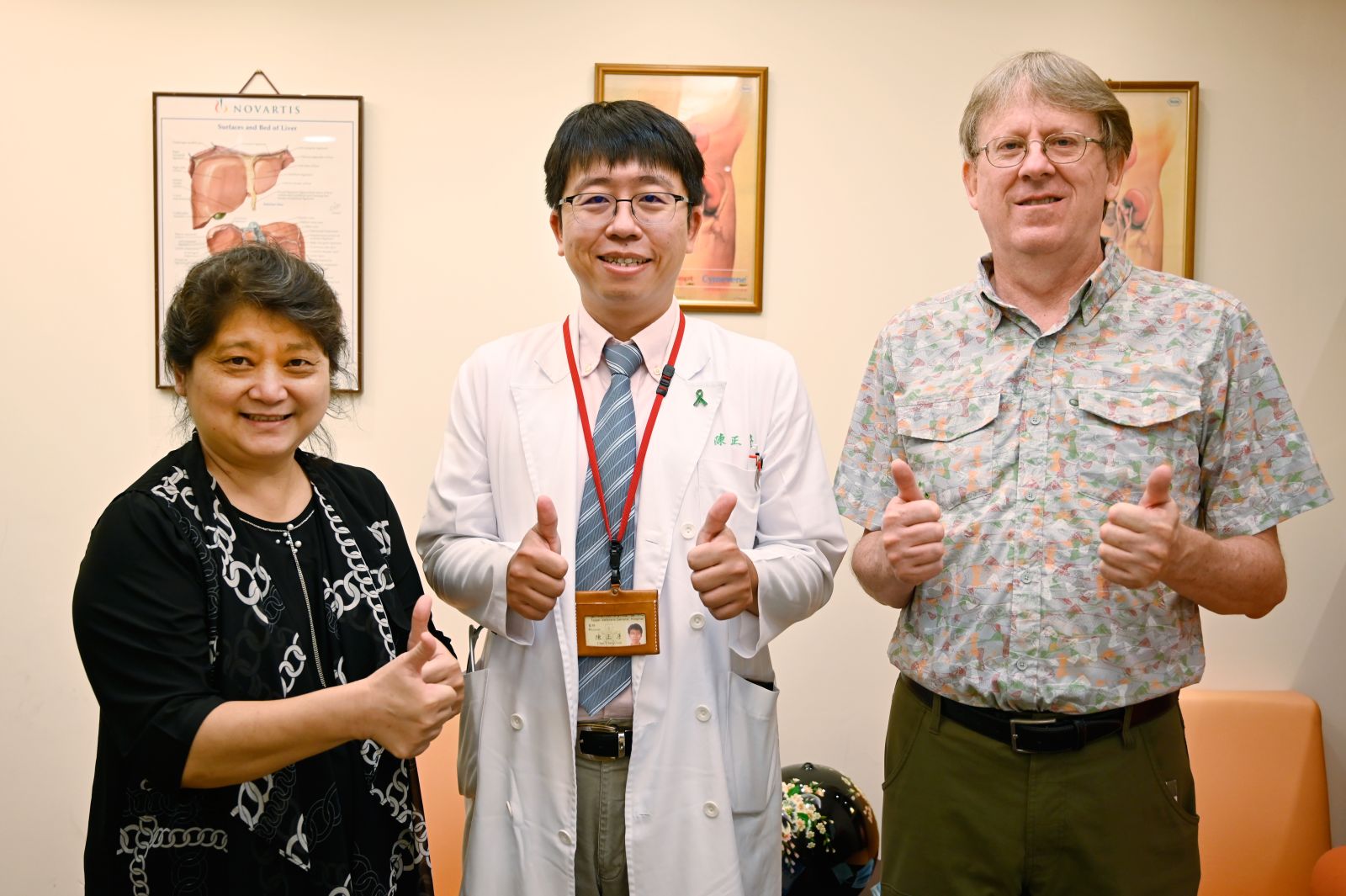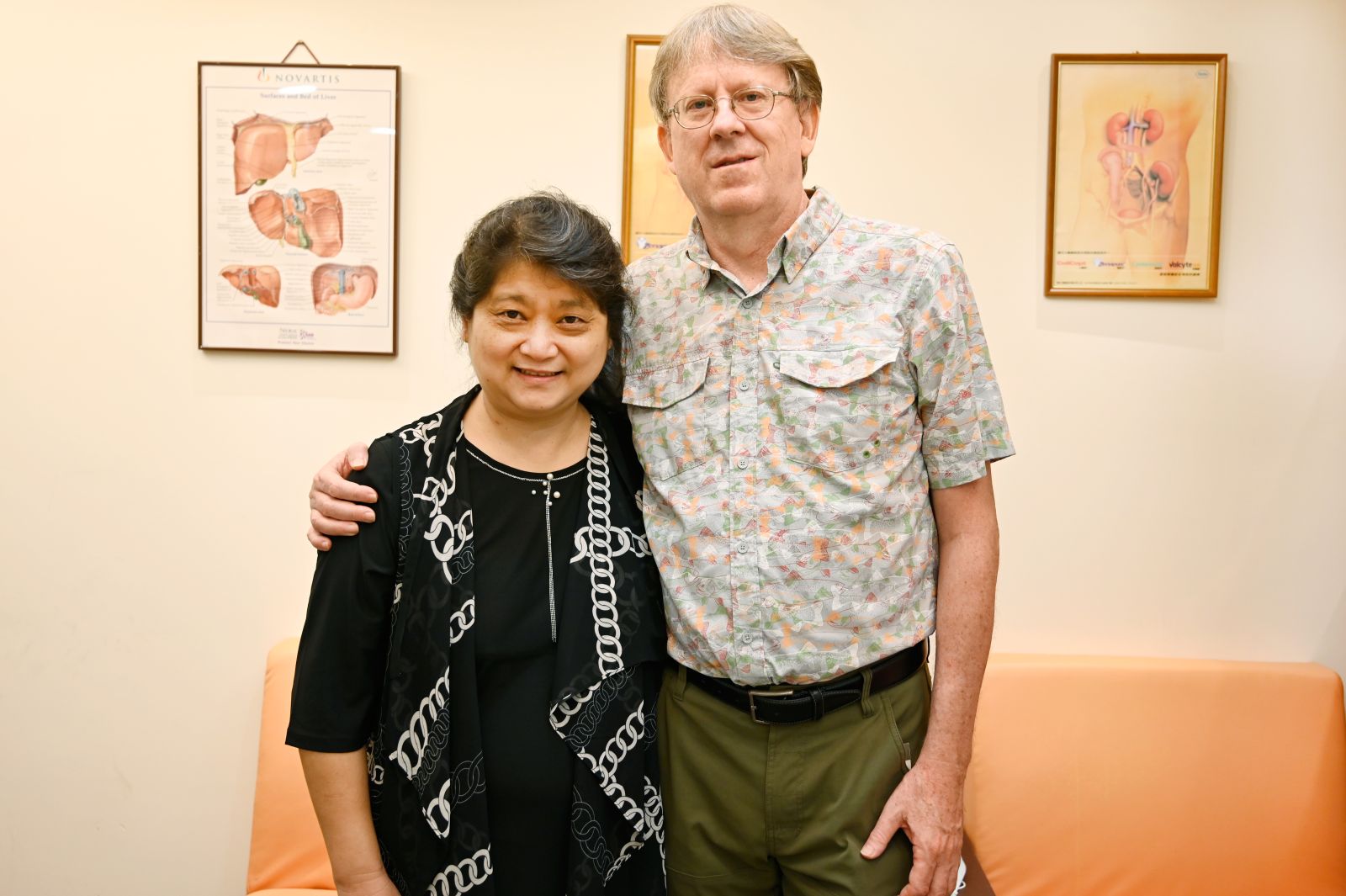
The objective of this paper is to give a short summery of our kidney donation, transplant and follow-up care from the Taipei Veterans General Hospital in Taiwan.
My wife of 37 years, Tammy Tsai, was born and raised in Taiwan. She was diagnosed with stage 5 kidney disease in October 2020 from Las Vegas, Nevada where we live. During a follow up examination from a local kidney specialist, Tammy was informed that she will need to immediately go on dialysis. My offer to donate would be a possibility, however the approval process, if accepted, would likely take around 1-2 years.
We, including our two children, have lived, and worked in Taiwan for many years, and we are very familiar with the efficiency of the Taiwan medical and health insurance systems. So, rather than going on dialysis in the US, we decided to return to Taiwan to see if a transplant was an option.

The following is a summary and assessment of our experience:
1. Pre departure communication
A few months prior to leaving Las Vegas for Taiwan, we contacted the kidney transplant office and explained our situation. The transplant team were very receptive and helpful in making and expediting required medical tests to determine if a kidney donation is possible.
2. Taiwan arrival and evaluation testing
After the 3 weeks required Covid-19 quarantine, the kidney team was ready, and immediate appointments for testing were scheduled. The process of testing and evaluation was astonishingly fast and efficient. Rather than facing a potential transplant wait time of 2 years and dialysis in the US, in Taiwan we were tested, evaluated, counseled, admitted into the hospital, and a surgery date set all within 4 weeks after we completed quarantine.
3. Hospital admittance.
The nursing staff was ready and waiting for our arrival and after admittance, we received a detailed consultation with our main Dr. Cheng-Yen Chen, regarding the surgery and what we should expect. We were very encouraged to learn that the surgery itself will be using the most advanced and newest technology available. One feature of the Taiwan hospitalization process is noteworthy; the hospital, if possible, requires a helper to stay in the hospital full-time to assist the patient. This frees up the nurses and allows them to focus on more critical patient care tasks.
4. Surgery
We are confident to say that we know that we received excellent care during the surgery itself. Tammy experienced unexpected complications during the surgery, and her doctors and medical care team took extra care to ensure the health, safety, and successfulness of the operation.
5. Post-surgery care
Our experience with the Taiwan medical system is that extra care is always taken to ensure the health and welfare of the patient. Hospital stays and doctor care are not cut short because of financial or in insurance restrictions. Tammy experienced post-surgery complications, yet every effort has been made to keep her in the hospital to ensure that she receives proper care.
6. Insurance and payments.
One of the most remarkable aspects of the Taiwan medical system is how closely the national health insurance program and the medical community work together to create a very efficient, effective, and low-cost experience for the patients. This past fall, Tammy sever case of Covid-19 in Las Vegas, and was hospitalized for 23 days at a cost of US$347,000. We have good health insurance in the U.S. yet after more than 10 months later, we are still battling with the hospital billing department, our health insurance negotiation department, individual doctors’ separate billings, payment billers, debt collectors and lawyers to get the $327,000 remaining debt paid. This process is very stressful and confusing, will likely continue for months more, and is nothing less than an ongoing nightmare. And undoubtably, this confused billing process greatly adds to the overall cost and inefficiency of the hospitalization experience.
In contrast, the Taiwan insurance and payments system is astonishingly efficient, stream-lined, and low cost. In the U.S. we were looking at having to wait 1 to 2 years before a transplant from a “husband donor” would be considered and approved. Yet, the testing and approval process in Taiwan was very fast and took 1 month. In addition, the various tests, doctors, nurses, and the evaluations were all well-organized and worked together as an efficient team, which reduced wasted time, money, and stress for the patient.
With a medical system as being described here, there may be an assumption that the quality of doctor care and patient attention would be hurried and of a lower standard, but this is not the case at all. At no time during the testing, hospitalization, surgery, or post-care did we ever feel rushed or given unacceptable care. Rather, the care offered by the doctors, nurses and hospital staff was always exceptional and personal.

There are three features of the Taiwan medical system I would like to highlight:
A. Disclosure of costs.
As we went through this process, the expenses covered by the health insurance, and the costs that were self-pay were very clear. If a test, procedure, or medication was not covered by insurance, we were told exactly what the cost would be, and given the option to accept or reject.
B. Cost of Pharmaceutical’s
The Taiwan health insurance covers most prescribed medications. But for those that are not covered, the full cost to the patient is generally 10% to 20% of the cost for the exact same product produced by same pharmaceutical company, sold in the U.S. This is not an exaggeration – many times, over the years of using the Taiwan medical system, we compared medication costs with the same item sold in the U.S. and the 10% to 20% of U.S. cost rule consistently holds true.
C. Payment of fees
All fees for doctors, services, medications, and tests, are billed by the hospital. At any time, the patient can go online to review or request nurse station for a print out of up to date charges. Compare this with the U.S. payment system in which the patient has no clear idea of what will be covered by their health insurance or what is self-pay. And if its self-pay there is no simple way of finding out what the cost will be. With the U.S. medical system, the patient must face multiple bills, very high costs, and the battles between the service providers and their health insurance companies for often time, months. Not to mention the billers, debt collectors, and threats of lawsuits.
The U.S. medical system has much to learn from Taiwan. It is my opinion that the efficiency of the Taiwan medical system allows for a more positive and low-cost experience for the patients, and at the same time a more effective usage of the service provider’s time and resources. The Taiwan medical system provides all its citizens, regardless of income, access to quality health and dental care at all levels.
Scheduling appointments with general or specialty doctors rarely requires more than a wait of one week. Medical tests and results can be obtained in a few hours or at the most 1-2 days. Medical costs are very clear, and the patient is given the option to optout. Payments are straight forward, simple to understand with no surprises, or unexpected or misunderstood costs.
And finally, the doctors, nurses and staff are professional and treat their patients with dignity and care. It is a great honor to be able to share our honest opinions about this medical care experience.
Thank you, Taipei Veterans General Hospital , Taiwan!
Sincerely,
Jay Bart Bowen
Tammy Tsai Bowen
Las Vegas, Nevada, USA
最後更新: